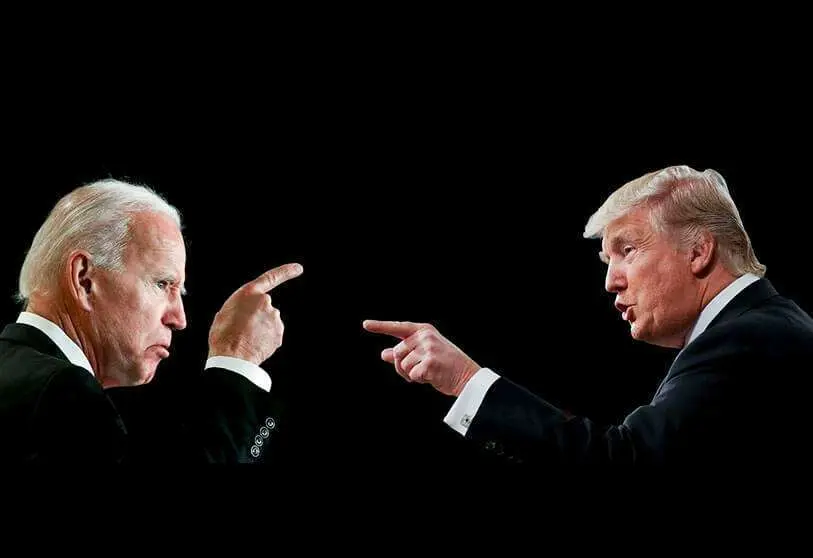Differing views of Trump and Biden on maintaining U.S. space leadership on China

Space policy is such an important issue for US taxpayers that both the current Republican President, Donald Trump, and the Democratic candidate, Joe Biden, have included in their respective election manifestos the guidelines they intend to follow if either of them comes to power after November 3 elections.
With different strategic visions for the four years one or the other will occupy the White House's Oval Office, both opponents discuss the space exploration and NASA issues, which attract the positive attention of 75% of America's population.
The main thrust of foreign policy if Donald Trump wins will be focused on national security. The president regards space as a new battlefield and repeats whenever he has the chance that " the one who leads space, leads the world". Washington cannot ignore its wish to maintain leadership and freedom of action in space in order to address the ongoing challenge posed to the United States by Xi Jinping's China, with Putin's Russia lagging behind.

Based on the country's technological and economic superiority, the programme drawn up by the Republican Party talks of "boosting the newly created Space Force"-an independent branch of the Air Force-and "establishing a permanent human presence on the moon". This is the Artemis programme, the maximum milestone planned for 2024, the year in which American astronauts-with the first women among them-can set foot on the moon's surface again.
It also seeks to "build a large cyber-defence system" to protect its satellite constellations and a powerful anti-missile shield, as well as to "promote the role of private initiative in space, win the race to 5G and establish a national high-speed internet satellite network on a global scale". And "laying the foundations for the first manned mission to Mars", leaving scientific programmes in second place.

To meet these priorities, the 2021 budget requested for NASA amounts to $25.2 billion, an increase of 11.5% over the current budget. To this must be added the funds allocated to the many military organisations active in the cosmos.
In Joe Biden's case, the cosmos has never been one of his personal or even political concerns. This is evidenced by his scant involvement in US space policy during his nearly five decades as a senator and his very few interventions in this field during his eight years as Barack Obama's vice-president (2009-2017). But neither was this the case with Donald Trump until he entered politics.
But as the Democratic candidate for the presidency, he has no choice but to place space at the forefront, as one of the main ways of satisfying those who strive to clean up the environment and better understand the climate change affecting the planet.

If he wins the November 3 elections, Joe Biden will encourage NASA to redirect its activity towards the Earth, with new satellite observation missions, in parallel with its major meteorological organisation, the National Oceanic and Atmospheric Administration (NOAA).
Joe Biden has promised the Agency to maintain its major activity in the exploration of the cosmos, which is the largest in the world, and which for the next five years contemplates an annual budget in the order of 2,800 million dollars. He confirmed that he would "continue with the major programmes already underway", such as the Lunar Gateway orbital station positioned around our natural satellite and Artemis, the return of astronauts to the Moon.

However, if the $28 billion budgeted between 2021 and 2025 for Artemis does not materialise, it will be a good excuse to postpone until 2028 the almost impossible goal set by the Trump Administration to return to the lunar surface within four years.
To better understand our own planet and our place in the Universe, the Democratic candidate also proposes "increasing funding for scientific research, as well as technological and medical innovation in cooperation with its International Space Station partners". Even "starting studies to take astronauts to Mars" and beyond in the late 2030s, the next big step in the exploration of the solar system.

If Democrats win, the Biden Administration is likely to impose few changes on the policies and programmes now being pursued by NASA. It will likely make changes to the priorities of the Space Force created by Donald Trump and modify budgets and schedules, but within a continuum of major initiatives already underway.

What seems clear to be cancelled, whoever the new president is, is the complete or partial development of the so-called Space Launch System or SLS, the super rocket capable of delivering the new manned spacecraft Orion to the moon, which could be replaced by a cheaper one from the company Saces.

SLS has suffered several delays, has consumed tens of billions of dollars and was a compromise solution imposed on Barack Obama by Congress to replace the unfinished Ares V launcher of the years George W. Bush was in office (2001-2009).











